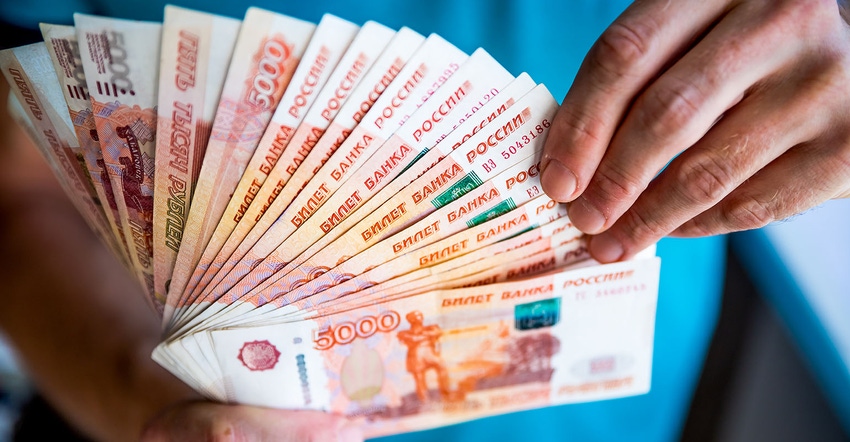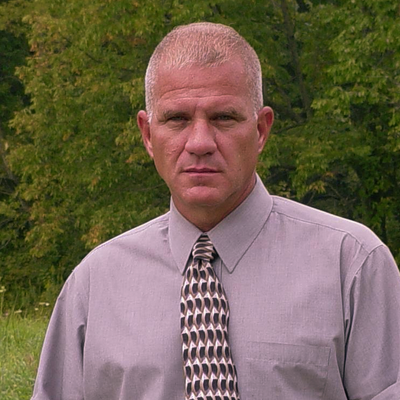
The Russian ruble is now stronger on the foreign exchange market versus the dollar than it was before the invasion of Ukraine. All the “massive economic sanctions” that were levied on the Russian economy appear to have had the opposite effect. How is that possible?
Gold.
With the aim of supporting the ruble, the Russian Central Bank announced three weeks ago the ruble (Russia's currency) would be backed by gold. Specifically, one gram of gold is now equal to 5,000 rubles.
Get this: gold is trading at $1,977 per ounce this morning. Therefore, you and everybody else in the world can buy Russian rubles, go to the Russian Central Bank and exchange 5,000 rubles for one gram of gold.
There are 28.3 grams in an ounce. Thus, 141,500 rubles will buy one ounce of gold worth $1,950.40.
The key is: how many dollars will it take to buy 141,500 rubles?
Three weeks ago, one U.S. dollar would buy 120 rubles. Thus, it took just USD $1,179.16 to buy one ounce of gold. And, that, ladies and gentlemen, is how the Russians have out-smarted everyone. It was just a few weeks ago Joe Biden said the Ruble will become rubble.
A little history
The U.S. dollar was tied to gold until 1933 when the gold standard was rescinded, meaning before 1933, anybody could take paper dollars to any national bank and redeem those paper dollars for gold at a guaranteed rate. That made the dollar as good as gold.
In 1933 the Federal Reserve and the U.S. government said the dollar was still backed by gold, but paper dollars could not be redeemed for gold. In 1971, even the charade that the dollar was backed by gold was thrown out.
The gold standard was rescinded to give the Federal Reserve and governments around the world more flexibility to manage (manipulate) exchange rates and economic activity. All currencies abandoned a true gold standard during the Great Depression.
Only one other country went back to the gold standard in the last 90 years and that was Libya in 2012 when Muammar Gaddafi went to the gold standard when the rest of the world was ganging up on him for being a jerk.
The "civilized" economies of the world could not have a third-class African country run by a bully with the strongest currency in the world! In 2011 Qaddafi suffered a brutal death during a major NATO operation to "support" liberty in Libya. Perhaps you recall the "spring uprisings," which included the overthrow of Egypt's government and an unfortunate incident at a place called Benghazi.
The U.S. Secretary of State went to Libya for a "victory lap" and declared, "We came, we saw, he died!" Who was the U.S. Secretary of State?
Why, none other than Hillary Clinton.
So, Putin may not be doing so well in Ukraine, however, he is kickin' butt all over the rest of the world. Money talks. When moneyed people can buy gold $500 under market, they will do it, even if they have to buy rubles. It is going to get nasty.
Will the civilized economies try to buy all of Russia's 2,298.53 mts of gold and send Russia into total bankruptcy? Or will they just kill Putin?
By going to the gold standard, Putin has made the Russian ruble the crown jewel of world currencies and negated every last negative impact of economic sanctions because legal or not, money people will find a way to buy rubles simply because they can exchange it for gold.
Wright is an Ohio-based grain marketing consultant. Contact him at (937) 605-1061 or [email protected]. Read more insights at www.wrightonthemarket.com.
No one associated with Wright on the Market is a cash grain broker nor a futures market broker. All information presented is researched and believed to be true and correct, but nothing is 100% in this business.
The opinions of the author are not necessarily those of Farm Futures or Farm Progress.
About the Author(s)
You May Also Like






